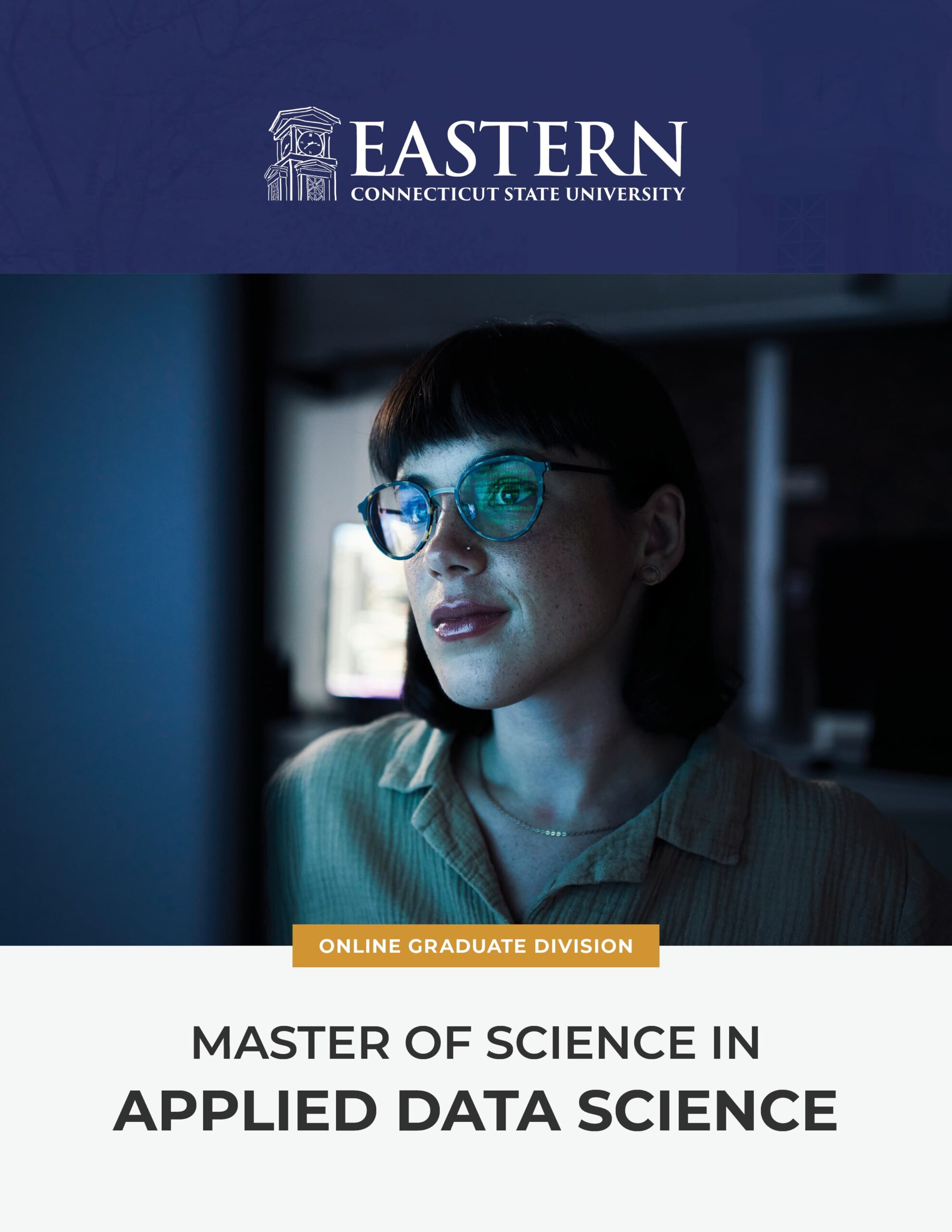It is crucial for businesses to acknowledge the value of experts who understand the best practices for capturing and analyzing data. This is how companies can gain and apply data-driven insights that lead to breakthroughs in operational efficiency, increase customer satisfaction and provide an edge against industry competitors.
Graduates with a master’s in data science can have the potential to provide organizations with the guidance they need in these areas. From learning how to leverage the latest advances in data visualization, creating statistical models, programming languages and more, these programs can provide invaluable expertise in extracting insights from the wealth of data now available.
This increased need for experts in data science and data analytics has made earning a Master of Science in Applied Data Science the more enticing academic choice for those who want to succeed in this emerging field.
Dr. Garrett M. Dancik, Professor and Chair of the Department of Computer Science and Program Coordinator for the M.S. in Applied Data Science at Eastern Connecticut State University (Eastern) said an M.S. in Applied Data Science prepares graduates with the skills they need to manage real-world situations.
“Our program emphasizes applied, hands-on learning that will prepare students for data science careers,” Dr. Dancik said. “In fact, the program culminates with a capstone course, Data Science Practicum, where students work with a faculty member or an external sponsor on a real-world data science project.”
Why is Data Science Important for Businesses Today?
In the past, businesses interacted with customers in person when they made a purchase. All other information from customers – their preferences for how a product is designed, the ways they use a product or service – came through focus groups and questionnaires.
Data science is important for businesses today because digital tools have forever changed how customers and businesses interact. Millions of people now shop and make purchasing decisions online. This shift to digital consumerism has created billions of data points for businesses to analyze and act upon.
Technology has also helped businesses streamline operations by finding inefficiencies in how they operate. Business leaders can use insights found in data to set strategic goals that incorporate a better understanding of the current marketplace.
All of this, however, requires the skills of someone with a high level of expertise in collecting, analyzing and finding actionable insights from data.
What Is Data Science?
Data science is an interdisciplinary field that employs statistical methods, software code and technology to extract valuable insights and knowledge from both structured and unstructured data. Combining expertise in statistics and computer science, data scientists uncover patterns, trends and actionable information from complex sets of data. By leveraging machine learning and advanced analytics, professionals in data science understand how to transform raw data into meaningful solutions, which can help drive innovation and problem-solving.
Organizations across virtually every industry have uses for applied data science, including business, healthcare, finance, marketing, nonprofits, insurance, technology startups, and government agencies. Applied data science typically involves several steps, including data collection, data cleaning and preparation, data analysis, and data visualization. The insights gained through applied analytics can be used to inform business decisions, optimize processes, and improve outcomes.
Advantages of Earning an Online Data Science Graduate Degree
For working professionals, earning an advanced degree online provides the flexibility to further their education while maintaining their personal and professional responsibilities.
Graduate students learn to distill insights from large data sets and provide recommendations that are useful across an organization. They learn a strong foundation in methods for data analysis, and the governance required for the responsible and ethical use of machine learning techniques and other advanced technology.
They also have opportunities to improve the soft skills that can help them work more effectively within an organization, including communications, storytelling and stakeholder management.
Dr. Dancik said that the target audience for Eastern’s data science program are “individuals who are working part-time who are seeking to refocus or accelerate their careers. Our program is designed to prepare students for data science-related careers, which are found in fields as diverse as business, finance, healthcare, insurance, environmental science, medicine, political science and more.”

Earn an M.S. in Applied Data Science
Dive into the world of analytics with an online M.S. in Applied Data Science. Unlock actionable insights, master data-driven decision-making, and open doors to new opportunities. Begin your transformative journey now.
Career Trends in Data Analytics
Fortune states the case succinctly: “There’s practically no end to the potential benefits of data analysis. For many organizations, people who can analyze raw data sets and draw conclusions – say, in sales data, customer data, or employee data – have become indispensable.”
Organizations typically focus the efforts of advanced data analysis in one or more of several key areas. One of the biggest areas is in anticipating consumer needs. Customers understand that they are giving data to businesses. What they expect in return are seamless experiences where their needs are anticipated and met. This includes highly individualized experiences based on a specific customer’s data.
Applied data science takes emotion out of decision making and supports the development of strategies based on historical data and the trends that data anticipates. Real-time feedback from customers allows businesses to modify products and services to better meet customer expectations. Data-informed strategies also help businesses avoid large financial losses and create more efficient business processes.
The U.S. Bureau of Labor Statistics (BLS) projects a 35% increase in the number of data science jobs between 2022 and 2032*. The BLS also reports that the median salary for data scientists is $103,500, as of May 2022.
At Eastern, graduate students in the M.S. in Applied Data Science program can learn the skills and knowledge to succeed on the job. For example, the “Python for Data Science” course teaches one of the fundamentals of success in data science.
“Writing code is an integral part of being a data scientist. This course will prepare students to be able to write code in Python, currently the most used language in data science,” Dr. Dancik said. “More generally, students will learn the foundational coding concepts that will allow them to continue to write and read code even as coding languages evolve.”
He added that data science is something that is used in every industry, opening a wide possibility of careers for applied data science graduates. “This is now one of the best things about data science, as organizations seek to fulfill their missions and improve their services through data-driven decision-making,” Dr. Dancik said.
Eastern’s M.S. in Applied Data Science is a unique program comprised of 30 required credit hours taught by faculty members in the departments of Computer Science, Mathematical Sciences and Education with expertise in areas related to Data Science. Through a diverse but cohesive set of courses, students learn coding, statistics, machine learning, databases, big data, data communication and data visualization.
“In short, data science is a field that helps others make better decisions,” Dr. Dancik said.
*National long-term projections may not reflect local and/or short-term economic or job conditions, and do not guarantee actual job growth. The information provided is not intended to represent a complete list of hiring companies or job titles, and degree program options do not guarantee career or salary outcomes. Students should conduct independent research for specific employment information.
By completing this form and clicking the button below, I consent to receiving calls, text messages and/or emails from BISK, its client institutions, and their representatives regarding educational services and programs. I understand calls and texts may be directed to the number I provide using automatic dialing technology. I understand that this consent is not required to purchase goods or services.
If you would like more information relating to how we may use your data, please review our Privacy Policy.






